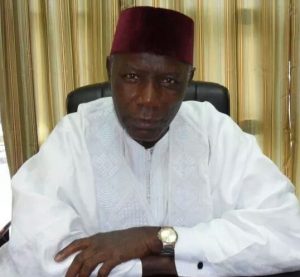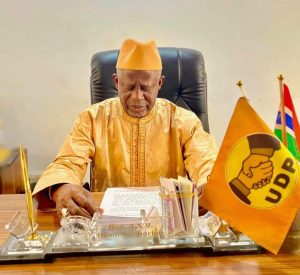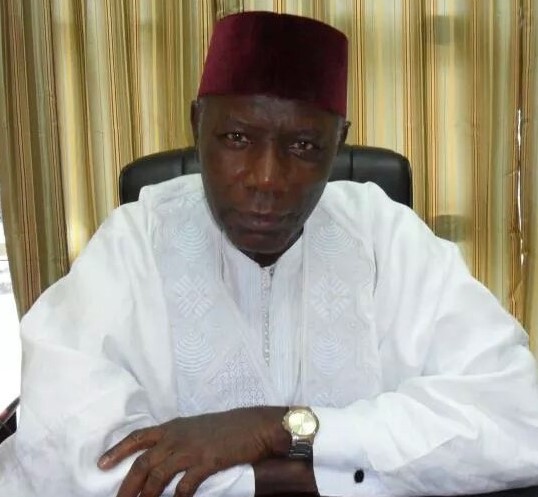By: Madi Jobarteh

It is 72 hours today since the United Democratic Party released the names and pictures of some 256 people said to form part of a larger list of people who were fraudulently registered by the IEC. The party said this is part of the evidence they have indicating that the December 4 presidential elections were rigged in favor of Pres. Barrow and NPP. Indeed, it is unfortunate that the matter did not go ahead in the Supreme Court so that the elections will be fully scrutinized to determine if it was stolen or not.

That notwithstanding, the UDP must be commended for sharing information they consider to be evidence of fraud. For that matter, the body most affected is the Independent Electoral Commission since it is the one who registered voters. By this information, the credibility and integrity of the IEC is hereby questioned. If this information is found to be true, then it means the IEC would have done an irreparable damage to the Republic and democracy as it has become a tool in undermining the genuinely sovereign will of Gambians in choosing their representatives.
For that matter, IEC should not ignore or be silent about these allegations which are coming from the country’s strongest and largest party over the past 25 years. IEC owes it to itself and to the Gambian public in particular to respond to the UDP allegations by either confirming or disputing them. The fact that the Supreme Court dismissed the case is no reason for the IEC to ignore these allegations. Rather IEC must realize that it is their integrity and credibility – as officials and as an institution – that is on the line here, for which they have a duty to protect and clear their name. More importantly, Gambian people have a right to know if the IEC ran the elections fairly or not.
While we look forward to the IEC’s response, it is also necessary to urge UDP to disclose the full information as soon as possible for public consumption. In this regard, it is necessary that UDP also brings this matter before the Inter-Party Committee so that all political parties would have the information and respond to it. The purpose of these moves is to ensure that all electoral stakeholders are on the same page as to whether the voter registration and other claims of fraud are real or not. If they are real, it means the IPC and political parties should take responsibility to engage in urgent reforms in order to clean the elections management system in the country. If the allegations are unfounded, then it will serve to maintain public confidence in the elections system which is necessary for the peace and stability of the country.
At the end of the day, what must be also emphasized is that if elections in the Gambia are bad, none is more responsible than the political parties. It is a known fact that in many elections around the world, rigging takes place mainly at registration level and not on election day. In the case of the Gambia, rigging is almost impossible on voting day itself. Hence to ensure the credibility of elections it is necessary that the registration process is right throughout. This is a matter that political parties themselves know since it was themselves who constituted the Gambia Opposition for Electoral Reforms (GOFER) in 2012. Comprising UDP, PDOIS, GMC, NRP, PPP and GPDP, they had identified 12 critical issues for reforms.
It was because of these weaknesses in the electoral laws and processes that the late Solo Sandeng led compatriots to stage a protest in 2016 which had served to galvanize these political parties into a grand coalition leading to their victory in the presidential elections on December 1. In May 2017, these parties went further to register huge success in the parliamentary elections as well thus giving them a majority in the National Assembly.
Despite their full and total control of the Executive and the Legislature from January 2017 to March 2022, it is with such shame and disappointment that these political parties and political leaders woefully failed to comprehensively review the Elections Act and reform the IEC in order to completely do away with electoral malpractices. But as typical of politicians in the Gambia, they selfishly conducted only a few piecemeal amendments to the Constitution and the Elections Act to suit their disgraceful selfish interests.
Therefore, the trouble with elections in the Gambia is squarely and wholly the fault of Pres. Adama Barrow and his Government, together with the UDP, PDOIS, NRP, PPP, GDC, APRC and the National Assembly as well as the IEC. Together, they have betrayed the trust of the people, and severely undermined democracy and good governance of the Gambia. They have shamelessly demonstrated that indeed Solo Sandeng and Compatriots died in vain.
Shame on this President and his Government and his accomplices of political parties.
In the meantime, all citizens must raise their voices to demand that the IEC respond to the UDP allegations without delay. If this case cannot go on in the Supreme Court, we the citizens, must bring the case to the court of public opinion in the interest of transparency and accountability.
For The Gambia Our Homeland

